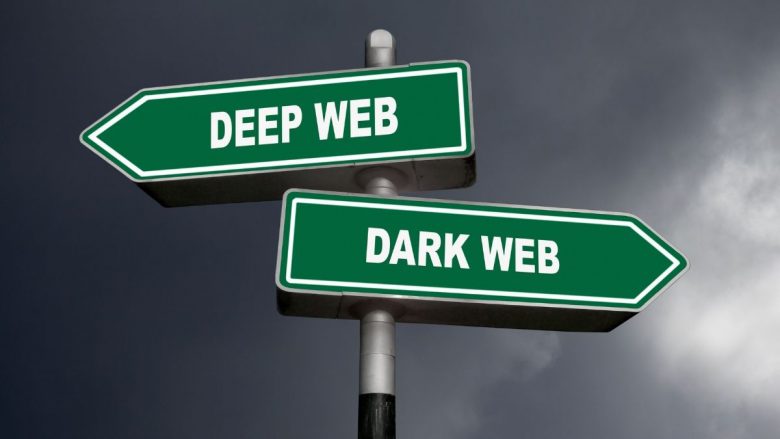
The terms “Deep Web” and “Dark Web” sound similar, but they’re not the same thing. While they are related, knowing the difference can keep you safe on the internet and make you popular at parties.
The Internet Is Not the World Wide Web
Before we get to the distinction between “deep” and “dark,” another common misunderstanding must be addressed. We often use the terms “internet” and “web” interchangeably, but they are not the same thing.
The internet is the global network infrastructure through which we communicate. This includes your computer’s network card, router, fiber line from your house, undersea cables, and all the other bits and bobs that send electrical (or optical) impulses all over the world. Internet Protocol can also be considered a distinguishing feature of the internet. It is the internet’s language and describes how information is encoded and routed over the internet.
The World Wide Web is a service that is powered by internet infrastructure. It is, in particular, the network of websites hosted on web servers and linked to the internet. Many other services, such as streaming video, FTP (file transfer protocol), email, and so on, are available via the internet.
If you want to understand the difference between deep, dark, and surface webs, you must first understand the internet as a network that can host many different types of network applications.
Read How to Perform Website Localization in 5 Simple Steps.
Life on the Internet’s Surface
The surface web is the internet’s public face. When you visit a company’s website, you are accessing the surface web. The surface web is essentially all of the websites and resources connected to the internet that can be freely discovered and visited. Definitions vary slightly, but the surface web is essentially all of the websites and resources connected to the internet that can be freely discovered and visited. The Google search engine, for example, “crawls” the web in search of publicly accessible websites. When you visit How-To-Geek, you are on the surface web!
The Deep Web Is Rolling
The “deep” web, then, is everything that is connected to the internet but is hidden behind some form of security. You’re on the deep web when you log into your webmail service. Everything you can’t see unless you log in to Facebook? That is also the deep web.
Rather than being a frightening aspect of the internet. The deep web is the meat and potatoes of our everyday internet experience. The amusement park’s basement is where all of the real work is done so that you can have a good time.
Unsurprisingly, the deep web comprises the vast majority of the internet. At this point, an analogy involving icebergs and how most of their bulk is under water is usually used.
The Deep Web
This brings us to the topic of the dark web. The dark web is a subset of the deep web, but it is a very small subset. These are websites and servers that have been purposefully concealed. The site’s administrators don’t want anyone to know who they are, and they don’t want just anyone visiting their sites.
Anonymity can be achieved in a variety of ways, but the majority of sites on the dark web are “onion” sites. They are only accessible through Tor Browser, which grants users access to the Tor network. The Tor network was created to allow completely anonymous (with some additional precautions) internet communication. When a user and a website exchange data over Tor, the data packets are routed at random through a massive network of volunteer computers. As each layer of an encryption onion is stripped from the packet contents, each of these nodes only knows where the packet just came from and where it’s going next. Only when the packet arrives at its final destination is the final layer of encryption removed, and the intended recipient receives the original data.
While most countries do not consider the dark web to be illegal. Criminals have quickly adopted it to shuffle illegal content and communication around the world. The dark web, in conjunction with the rise of cryptocurrencies, has enabled billions of dollars in illegal trade.
There are plenty of legitimate websites on the dark web as well, but most users should avoid it because it carries serious cybersecurity risks, and any site could be compromised tomorrow even if it isn’t today.
Read In 2022, Why Is Link Building Still A Vital Marketing Strategy?


